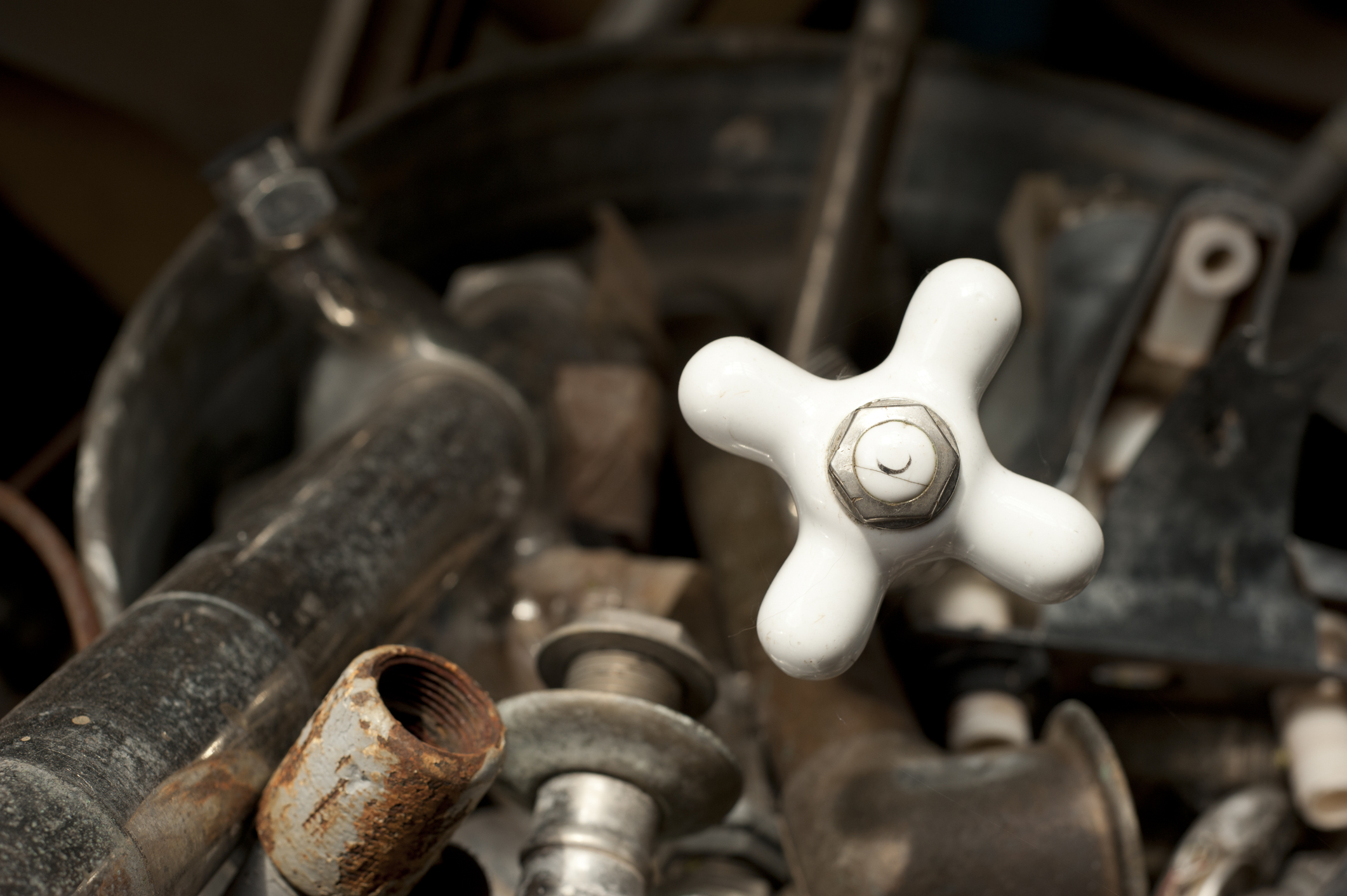
Let’s be real, plumbing jobs can leave behind a ton of leftovers. Old copper pipes, rusted fittings, busted fixtures… it all adds up fast.
But here’s the thing: those scraps aren’t just junk. They’re money waiting to happen. That’s the magic of scrap metal recycling.
If you’re not recycling your scrap, you’re leaving cash on the table—this guide is here to change that.
We’ll show you where to find the hidden value in your leftovers, how to stay on top of scrap prices, and why teaming up with pros like Richmond Steel Recycling makes your life way easier.
If you’re a plumbing contractor, you’re probably dealing with scrap metal on the daily—why not make the most of it?
Some of the most valuable materials to recycle include:
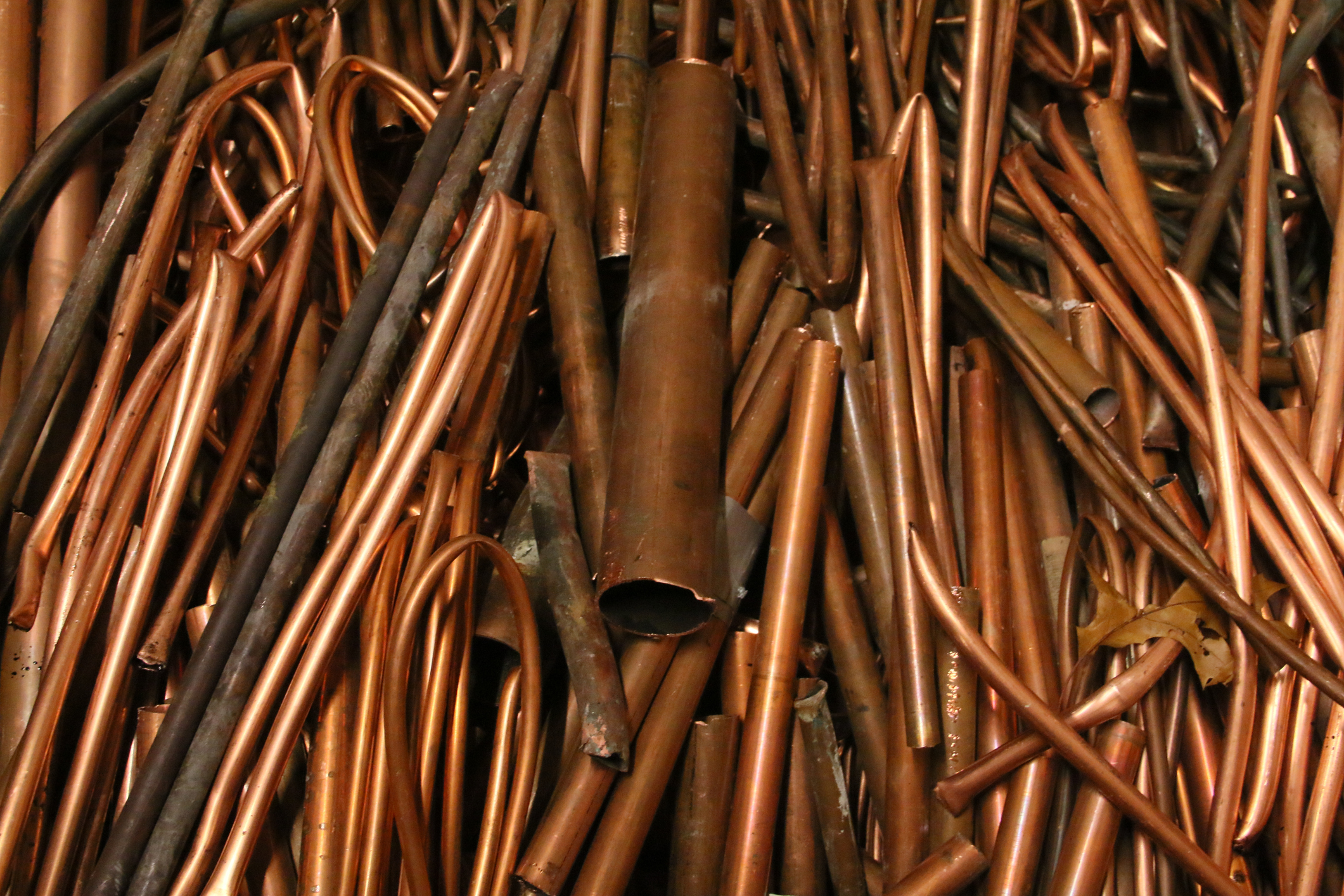 | 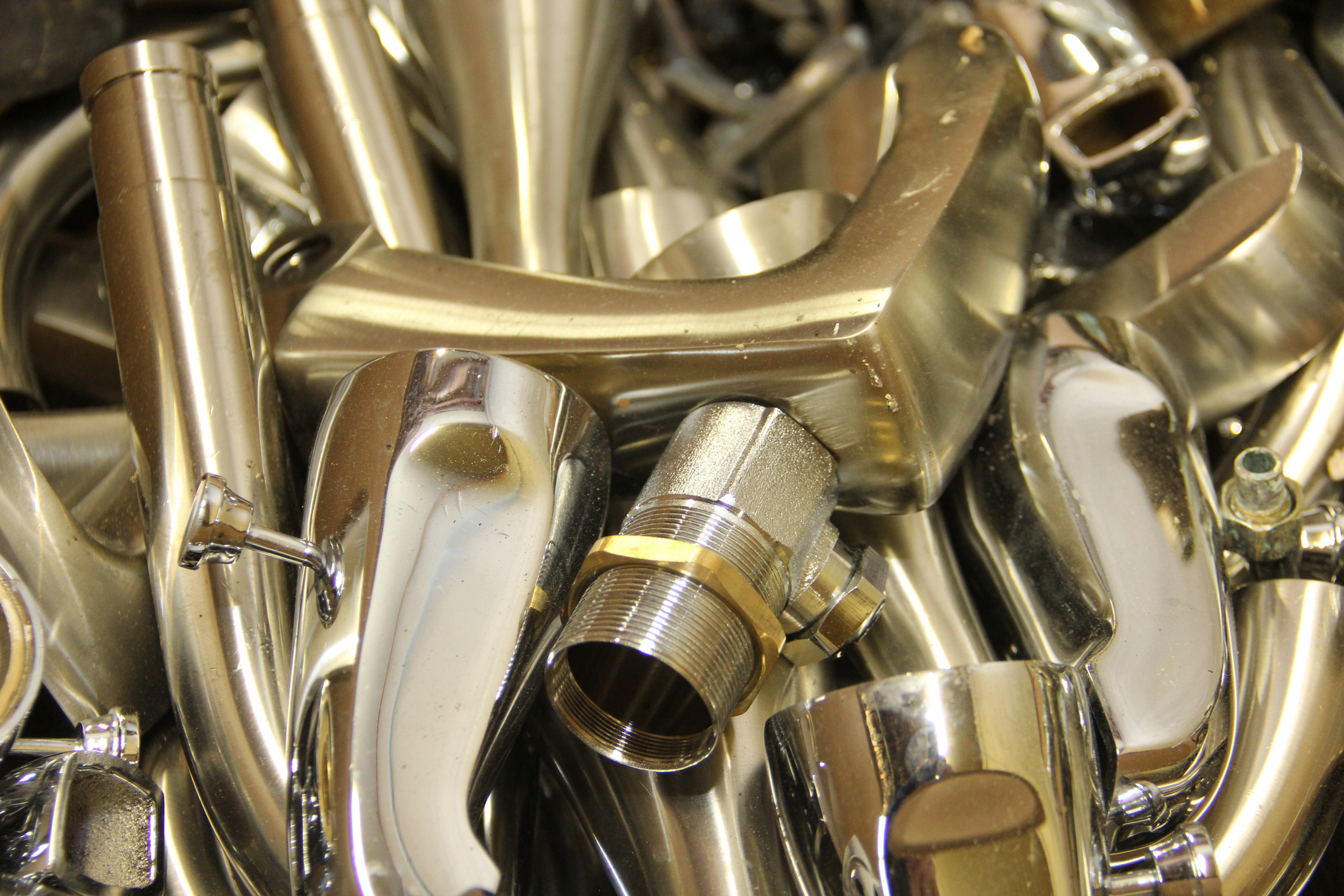 | 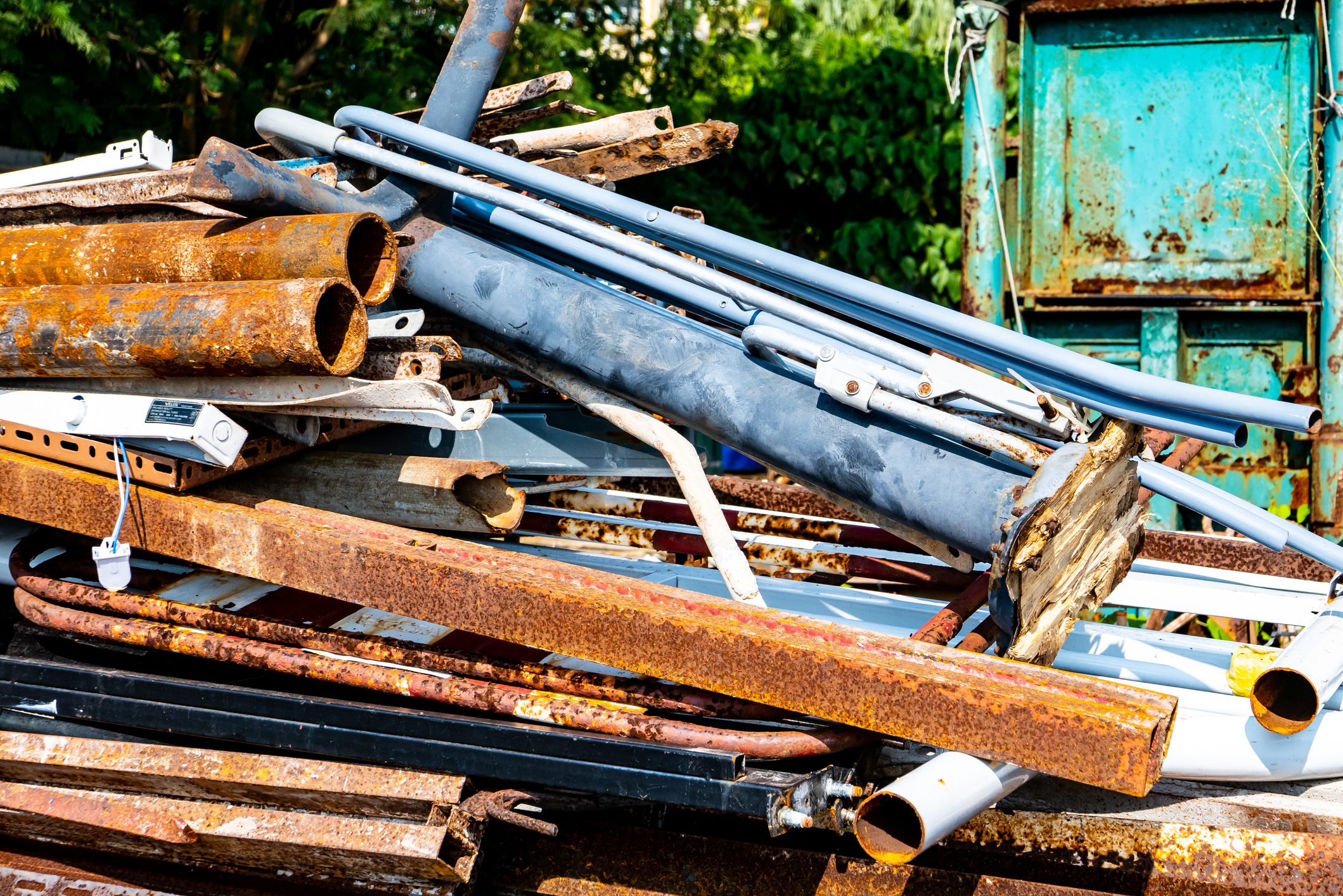 |
| Copper The golden ticket in plumbing. Pipes, fittings, and wiring are all worth big bucks in the recycling world. | Brass Those valves and fixtures you’re replacing? Brass is non-ferrous, meaning it fetches a solid price. | Steel Old sinks, tubs, and larger pipes might not seem glamorous, but steel adds up fast. |
Here’s the trick: know the difference between ferrous metals (like steel and iron, usually heavier and magnetic) and non-ferrous metals (like copper and brass, lighter and higher-value). The better you can sort your metals, the better your payout.
| Ferrous Metals Ferrous metals—like steel and iron—account for most of the scrap volume from sites. These metals tend to demand a lower price and are typically purchased by the ton. | Non-ferrous Metals More conductive metals—such as copper, aluminum, and brass—are often used in pipes, fittings, fixtures, and valves. They are more valuable and are purchased by the pound. |
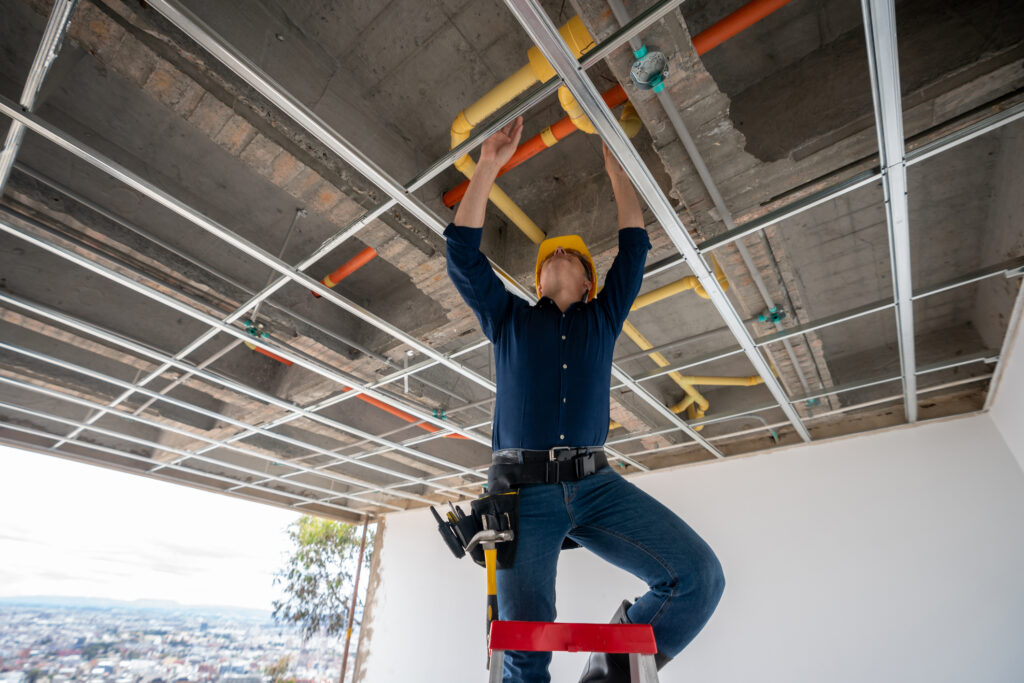
Scrap metal isn’t always obvious, but once you know where to look, you’ll start spotting value everywhere. Here are the hot spots plumbing contractors should check:
Renovations and replacements are gold mines for scrap metal recycling. Old pipes, brass fixtures, and even water heaters can pile up quickly on residential job sites. Copper pipes and fittings, in particular, are highly valuable, while steel sinks and bathtubs may not seem glamorous but add significant weight to your scrap haul. Even outdated faucets and valves—often made of brass—can bring in a solid return at the recycler.
Larger-scale commercial projects often generate even more valuable scrap. Industrial-grade piping, HVAC components, and heavy-duty fixtures are just a few examples. Air conditioning units, for instance, are packed with copper and aluminum, while large-diameter steel pipes add weight and value. Don’t forget about kitchen and restroom fixtures in office spaces, often made from recyclable metals like stainless steel.
Demolition sites are treasure troves for scrap metal recycling. You’ll find old boilers, radiators, structural steel beams, and even electrical wiring. Copper wiring, in particular, can bring in top dollar. The variety of scrap materials at demolition sites means these projects offer a huge opportunity to maximize returns—if you’re prepared to sort and recycle responsibly.
Pro Tip: Always bring a magnet to the job site. A quick swipe will tell you if a piece is ferrous (sticks) or non-ferrous (doesn’t stick). Sorting your metals on-site not only saves time but also ensures you get the best payouts when you visit the recycler.
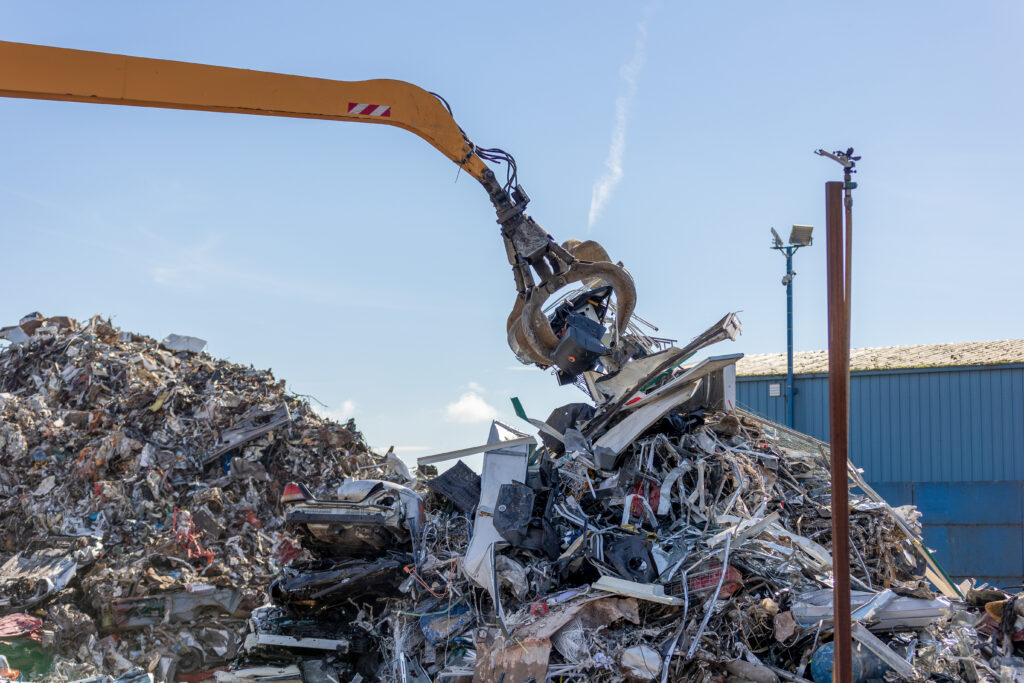
Scrap prices can feel like a moving target. They fluctuate based on market demand, material type, and even global trends. For plumbing contractors, this means staying informed is key to getting the best return for your materials.
Recyclers like Richmond Steel Recycling make this process easier by offering competitive and transparent pricing. Using certified trade scales, we ensure accurate weights for your scrap, so you’re never left guessing. Plus, with real-time insights into market trends, you’ll always know you’re getting a fair deal.
| Richmond Steel offers SMS alert options for exclusive promotions on certain metals—you’ll always get the best bang for your buck! |
Copper, for example, is one of the most valuable metals in plumbing, but its price can vary depending on demand. The same goes for brass fixtures or steel components. Knowing when to sell and partnering with a recycler who pays attention to these details can make a big difference in your bottom line.
Scrap metal recycling isn’t just about getting rid of leftovers—it’s about turning them into profit. And to do that efficiently, you need a partner who simplifies the process and maximizes your returns. That’s where Richmond Steel Recycling shines.
For plumbing contractors, we’ve streamlined the yard drop-off process to make recycling scrap a breeze.
With multiple locations across British Columbia and Alberta, our drop-off service is designed to save you time while delivering top-notch results.
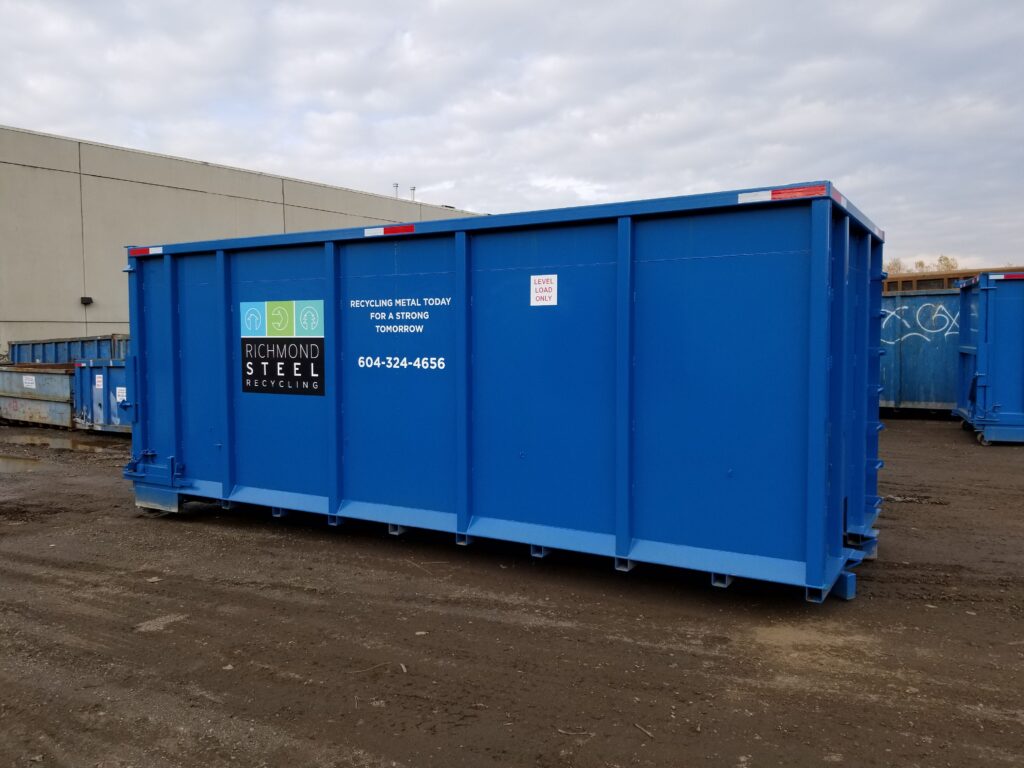
When you’re managing larger projects, hauling scrap off-site yourself isn’t always practical. That’s where Richmond Steel’s bin rental service comes in.
Whether you’re cleaning up after a job or prepping for demolition, renting a bin makes recycling seamless and stress-free.
For larger-scale jobs with significant scrap metal, Richmond Steel’s mobile baling services are a game-changer.
Make every pound of scrap count with these quick tips:
Scrap metal recycling isn’t just smart—it’s profitable. Richmond Steel Recycling makes it easy with convenient drop-off locations, bin rentals, and mobile baling services.
Get competitive scrap prices, transparent weighing, and expert support to maximize your returns.
Turn your scraps into cash today—contact Richmond Steel Recycling!